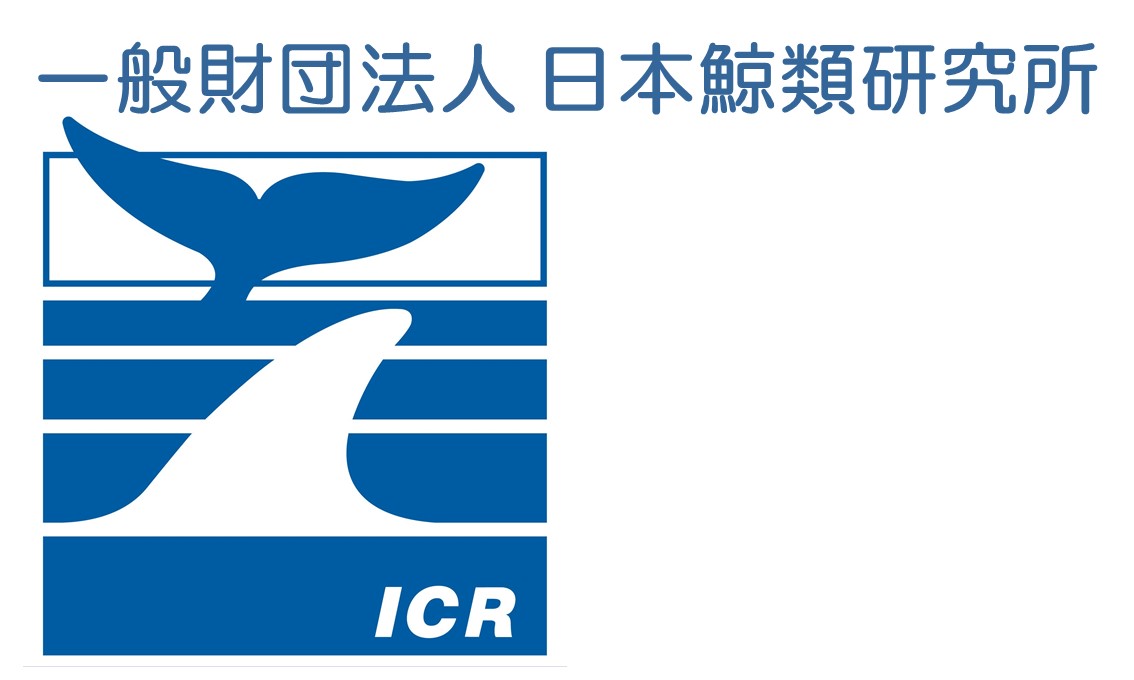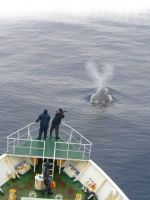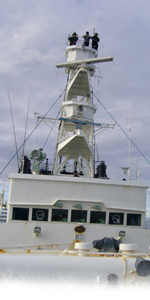AUSTRALIAN SCIENTISTS MISS THE POINT - AGAIN
2007/11/14
The Institute of Cetacean Research (ICR) in Tokyo, which carries out Japan's whale research program in the Antarctic and western North Pacific, says a report today by the ABC in Australia is seriously lacking in its analysis.
The report says Australian scientists have found methods by which they are able to extract, through DNA analysis of "flakes of skin" shed by humpback whales when they breach, the same information obtained by Japanese research. The Australian scientists say they can identify particular whales' parents through DNA research, relationships with other whales, and an "approximate" age.
The Australian scientist, Dr Peter Harrison, even proffers a personal opinion that: "It's much better to have an approximate age of a living whale than a more exact age of a dead whale.".
"Actually, it's not better," the director general of the ICR, Mr Minoru Morimoto, said today. "To ensure that a commercial management regime is robust and sustainable it is of the utmost importance that the best scientific data is obtained and that does not mean just a loose gathering of skin flakes and photographs."
"A first step to managing interactions between human activity and whale species is to gain accurate scientific knowledge about these species. Japan's research is a long-term scientific program that is obtaining biological and ecosystem information required for proper management.
"This requires consistent research over a long period and information being obtained through lethal research. Mortality, birthing rates and accurate age determination, important for whale management, cannot be done through DNA analysis of random skin flakes," Mr Morimoto said.
"There is general scientific agreement that the telomere analysis being used by Dr Harrison is very preliminary at this stage and that it does not provide the accurate age determinations required for population modelling studies," he added.
The number of whales taken in Japan's research program is far below the potential biological removal (an estimate of the maximum number of animals that can be removed from a population - not including natural mortalities - while still allowing that stock to maintain its optimum sustainable value) for the species.
"Japan's research makes a valuable contribution to the management of Antarctic whale species to ensure that any future commercial whaling regime is robust and sustainable to provide a reliable food source for generations to come," Mr Morimoto said.
ENDS




